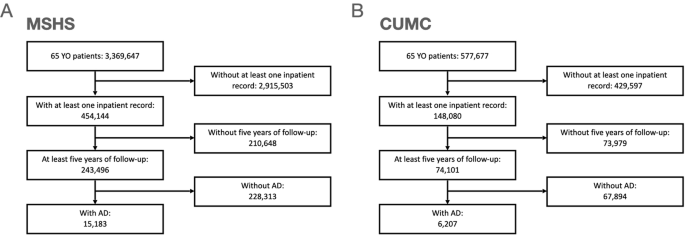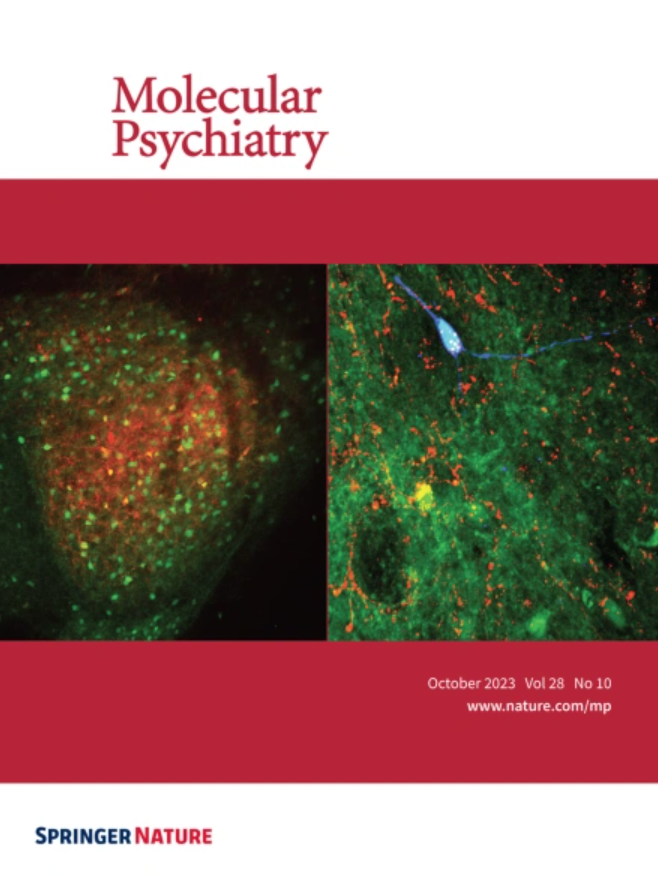肝素治疗与美国两个大型医疗系统电子健康记录中阿尔茨海默氏症痴呆症的延迟诊断有关
IF 9.6
1区 医学
Q1 BIOCHEMISTRY & MOLECULAR BIOLOGY
引用次数: 0
摘要
最近的研究表明,硫酸肝素蛋白多糖(HSPG)有助于阿尔茨海默病(AD)的易感性、保护性、潜在治疗和预防。在此,我们利用两个不同医疗系统的电子健康记录(EHR)来研究肝素治疗是否与阿兹海默症痴呆症的延迟诊断有关。我们使用西奈山医疗系统(MSHS)15183 名患者和哥伦比亚大学医学中心(CUMC)6207 名患者的纵向电子病历数据进行了单独的生存分析,比较了接受或未接受肝素治疗、观察时间至少 5 年、最后一次就诊时至少 65 岁、随后有诊断代码或药物治疗证据表明可能患有 AD 痴呆症的患者。分析对年龄、性别、合并症、随访时间和住院次数进行了控制。肝素治疗与AD痴呆临床诊断年龄的显著延迟有关,包括MSMS队列中的+1.0岁(P <0.001)和CUMC队列中的+1.0岁(P <0.001)。虽然还需要进行更多的研究,但这项研究支持肝素样药物和 HSPGs 在保护和预防阿德痴呆症方面的潜在作用。本文章由计算机程序翻译,如有差异,请以英文原文为准。


Heparin treatment is associated with a delayed diagnosis of Alzheimer’s dementia in electronic health records from two large United States health systems
Recent studies suggest that heparan sulfate proteoglycans (HSPG) contribute to the predisposition to, protection from, and potential treatment and prevention of Alzheimer’s disease (AD). Here, we used electronic health records (EHR) from two different health systems to examine whether heparin therapy was associated with a delayed diagnosis of AD dementia. Longitudinal EHR data from 15,183 patients from the Mount Sinai Health System (MSHS) and 6207 patients from Columbia University Medical Center (CUMC) were used in separate survival analyses to compare those who did or did not receive heparin therapy, had a least 5 years of observation, were at least 65 years old by their last visit, and had subsequent diagnostic code or drug treatment evidence of possible AD dementia. Analyses controlled for age, sex, comorbidities, follow-up duration and number of inpatient visits. Heparin therapy was associated with significant delays in age of clinical diagnosis of AD dementia, including +1.0 years in the MSMS cohort (P < 0.001) and +1.0 years in the CUMC cohort (P < 0.001). While additional studies are needed, this study supports the potential roles of heparin-like drugs and HSPGs in the protection from and prevention of AD dementia.
求助全文
通过发布文献求助,成功后即可免费获取论文全文。
去求助
来源期刊

Molecular Psychiatry
医学-精神病学
CiteScore
20.50
自引率
4.50%
发文量
459
审稿时长
4-8 weeks
期刊介绍:
Molecular Psychiatry focuses on publishing research that aims to uncover the biological mechanisms behind psychiatric disorders and their treatment. The journal emphasizes studies that bridge pre-clinical and clinical research, covering cellular, molecular, integrative, clinical, imaging, and psychopharmacology levels.
 求助内容:
求助内容: 应助结果提醒方式:
应助结果提醒方式:


